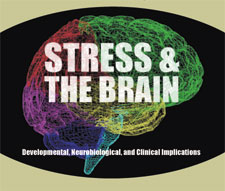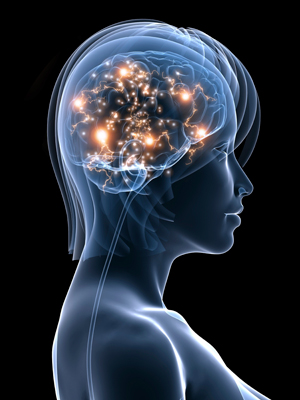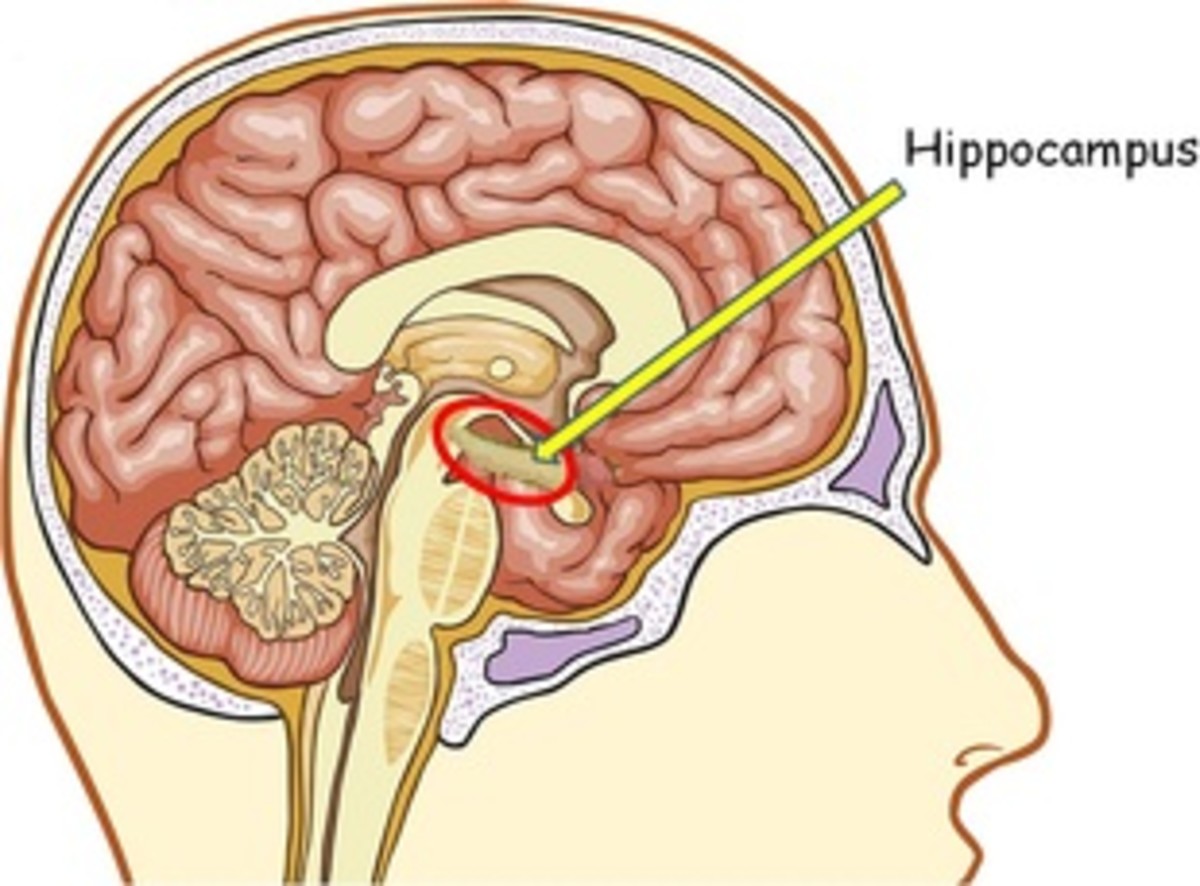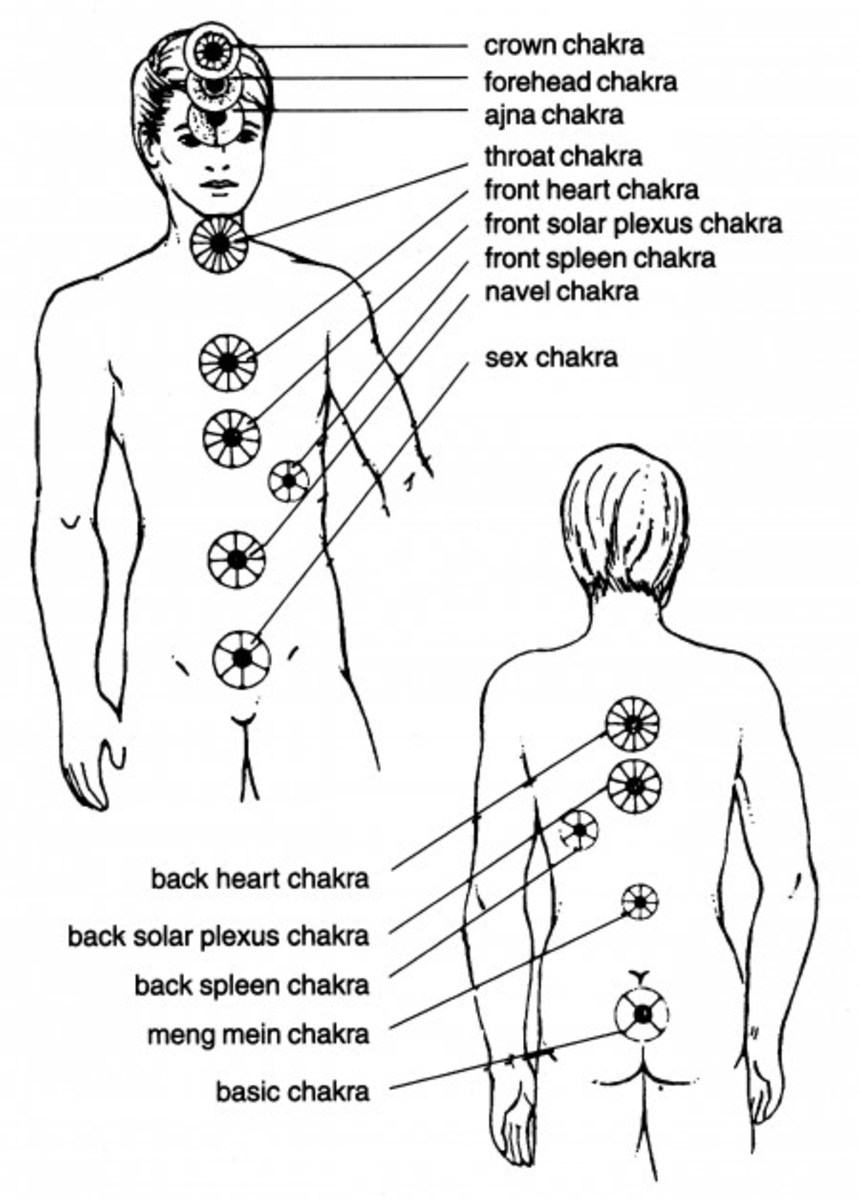- HubPages»
- Health»
- Mental Health»
- Stress Management
Stress and the Brain
What Affect Does Stress Have on the Brain?

Chronic Stress
Stress can have many negative affects on our memory and emotions. Scientists have known for a long time that stress can impact the way our mind processes information and stores our memories. This may be due to changes in certain areas of the brain during stressful times.
Chronic stress affects two major parts of the brain; the hippocampus and the amygdala. Researchers have found that factual memories weaken during stressful experiences and emotions strengthens.Cognitive function may become impaired from stress and the messages that are received are emotional, not factual. This may impact a person’s ability to think clearly and make good decisions. Chronic stress may also be a contributing factor in depression.
In a recent German study stress related depression was linked to a higher risk of cognitive decline and a person developing Alzheimer’s disease. This is believed to happen because stress increases the production of cortisol and adrenaline (epinephrine).
Constant stress causes these chemicals to remain high, which causes blood sugar imbalances, and blood pressure problems. This can cause deleterious effects on muscle tissue, bone density, immunity, and inflammatory responses. New nerve connections in the hippocampus become blocked and make it more difficult to create new memory pathways and to encode new memories.
When these new neural connections are blocked the hippocampus can actually shrink the hippocampus and hinder memory, limit our mental flexibility and cause mental burnout and cause us to become less motivated.
Ways to Reduce Stress
There are some preventative measures that can help ward off the damaging effects of stress and maintain cognitive functioning:
-
regular exercise - which help build new neurons in the brain, promote good sleep, reduce depression, increase self confidence, and increase the production of endorphins which help us to feel good.
-
relaxation - meditation, tai chi, nature walks, yoga, and quiet time that make you feel at ease can decrease blood pressure, lower metabolism, slow up breathing, and reduce muscle tension. Meditation, especially has shown many benefits for managing stress and building up our mental resistance. Communing with nature has many positive and rejuvenating effects that help reduce stress and improve cognitive functioning
-
socializing - loneliness is linked to an increased risk of heart disease and depression, lower quality of sleep, poorer mental and physical health. Family, friends, and pets help reduce stress and keep your mind alert.
-
be in control - reducing victimhood and feeling empowered can improve stress resiliency. Gaining control over circumstances can improve self confidence and feel more proactive.
-
laugh - laughing helps us feel better, reduce stress, and lower cortisol and adrenaline levels. Humor helps us to keep a positive attitude and have a beneficial effect of reducing stress and the damage it can cause to the the brain.
-
think positive - how you think about stress can make a big difference. Attitude is everything. The way we look at things can make all the difference. Feeling grateful, appreciating the things you do have, realizing that things can be worse definitely improves a person’s ability to manage stress and build brain resilience.
Stress Has Many Negative Effects

The Effects of Stress
Chronic stress has deep and possibly irreversible negative effects mentally and physically. The brain is most definitely affected by constant stress. We can’t change stressful situations as they happen, but we can control how our we react to it. By managing our stress and making simple lifestyle changes and practicing good techniques that help reduce strewill help reduce the damage stress does to the brain.
The brain may be more affected by stress than was once realized. Netherland researchers scanned the brains of soldiers who were in combat and it showed that there was impairment in their functioning and structure after they returned home from war. It was also found that many of these damaging effects go away in time.
The study examined 33 Dutch soldiers who were deployed to Afghanistan for four months and 26 soldiers who never went off to war. The researchers examined the soldiers and found no significant differences in post traumatic stress disorder between the soldiers who were deployed and those who were not deployed, even though the soldiers in Afghanistan did experience armed combat and enemy fire and other stresses that accompany combat. Likewise there were no significant differences in anxiety and mood scores between all the soldiers.
There were however, significant differences in the brains of the soldiers who were deployed and those who never went to Afghanistan. The midbrain of the soldiers who experienced combat and the structure of their brains showed difference. The imaging tests that were conducted showed less connectivity between in these brain regions. Some of the changes were subtle and didn’t even translate into impaired performance
Relaxation Products to Help Reduce Stress
Ways to Relax

Cognitive Impairment and Stress
In addition to cognitive impairment, the soldiers who experienced combat showed signs of greater vigilance. The amygdala is the part of the brain that detects potential danger and showed heightened activity in these soldiers who recently returned from war.
These soldiers, when given cognitive tests, overall performed worse than those who were not sent off to war. In a two month time period, when the tests were redone, the effects were less. By a year and a half, when the soldiers were tested again, the cognitive functioning went back to normal regarding their brain structure and their cognitive performance and vigilance.
This study showed that stress does affect the brain and can cause impairment, but the brain is able to restore the adverse effects the stress has caused.
Stress and the City
There are many everyday reasons that anyone can feel stressed. Research is confirming that stress does affect the brain more so in people who live in the city, than in people who live in the countryside.
Studies have shown that there is a greater risk of anxiety, schizophrenia, and mood disorders with people who live in the city. Even people who live in rural areas, but were born in cities, show this same kind of brain changes.
The amygdala, a part of the brain that is connected to feelings of anxiety, depression, and fight or flight response showed to be more active in people who lived or were born in the city. It seemed like the level of activity went up depending on the size of the city they came from, and how many years they lived in the city. The more years, the more active that area of the brain was.
Hyperactivity in the amygdala has been connected to anxiety issues and other mental health disorders. The researchers don’t know yet what influences this hyperactivity in the brain. Future studies will be done to decipher if it comes from over stimulation, noise, pollution, visual stimuli, encountering new situations and strangers, or other factors that can have such influence on the brain.
More and more people are living in cities. Statistics show that over half of people on the planet, now live in cities and by the year 2050, nearly 70% of the population is expected to be city dwellers. With new research, cities may be constructed in a way that are healthier for people and more attuned to their needs.
Stress will always exist, the only thing we can do is find ways to prevent and alleviate stress as it happens.










